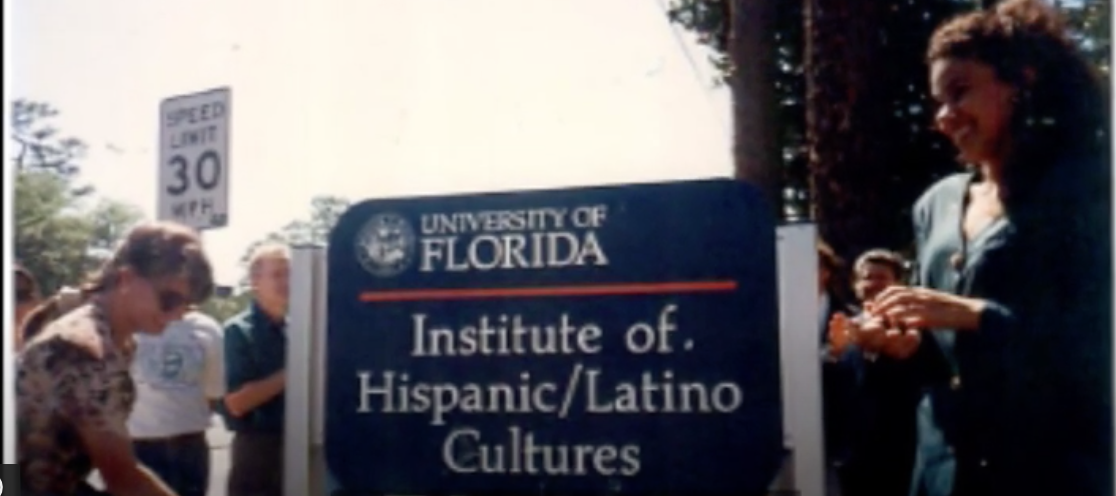The Making of La Casita
2015
The Making of La Casita is a documentary film produced by the Samuel Proctor Oral History Program and funded by the UF Office of the Provost. Discussing the origins of the Institute of Hispanic-Latino Cultures at UF (known as “La Casita”) the film chronicles the history of Latinx students and faculty at the University of Florida.
This film draws on oral history interviews conducted by students, staff and volunteers at the Proctor Program to explore the historical and political complexity of identifying as Latina/o as well as the diversity within the Latinx population. The film’s narrators discuss the need to cultivate one’s own Latinx identity in higher education through exposure to a rigorous academic program of ethnic studies.
The Making of La Casita recounts the many ways students, faculty and past directors have worked to make La Casita an enduring space for education, advocacy, community, and academic excellence.
The Samuel Proctor Oral History Program is thrilled to present The Making of the Institute of Black Culture (IBC) and The Making of La Casita. These documentaries were produced with generous funding by the UF Office of the Provost.
Provost funds also made possible a university seminar titled “A Black and Latinx History of the Gator Nation,” taught by Dr. Ryan Morini, Juliette Barbera, and Juanita Duque and sponsored by the African American Studies Program.
This film draws on oral history interviews conducted by students, staff and volunteers at the Proctor Program to explore the historical and political complexity of identifying as Latina/o as well as the diversity within the Latinx population. The film’s narrators discuss the need to cultivate one’s own Latinx identity in higher education through exposure to a rigorous academic program of ethnic studies.
These interviews began with a collaboration between Dr. Paul Ortiz, Dr. Eric Castillo, and Nathalia Hernandez Ochoa, and continued through the efforts of Génesis Lara and the 2014-2015 LDAP class. The current film builds on these prior efforts through the work of Juliette Barbera, Juanita Duque, Aliya Miranda, and many other students and recent graduates.
